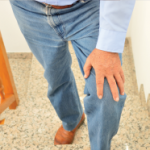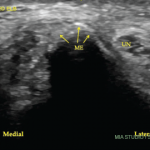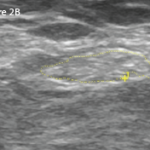 The recently updated Osteoarthritis Research Society International (OARSI) guideline offers comprehensive and patient-centered treatment approaches for individuals with knee, hip and polyarticular osteoarthritis (OA). Raveendhara R. Bannuru, MD, a rheumatologist at Tufts Medical Center, Boston, and colleagues published the guideline online July 3 in Osteoarthritis and Cartilage. The paper also includes a treatment algorithm, which serves as more structured guidance to facilitate individual treatment decisions for patients on a long-term and ongoing basis.1
The recently updated Osteoarthritis Research Society International (OARSI) guideline offers comprehensive and patient-centered treatment approaches for individuals with knee, hip and polyarticular osteoarthritis (OA). Raveendhara R. Bannuru, MD, a rheumatologist at Tufts Medical Center, Boston, and colleagues published the guideline online July 3 in Osteoarthritis and Cartilage. The paper also includes a treatment algorithm, which serves as more structured guidance to facilitate individual treatment decisions for patients on a long-term and ongoing basis.1
The OARSI voting panel consisted of an international group of experts from a variety of professional backgrounds, including general practice, orthopedic surgery, rheumatology, sports medicine and physiotherapy. The transparent and systematic guideline development process used Grading of Recommendations Assessment, Development and Evaluation (GRADE) methodology, as well as a well-defined, group-consensus technique. The rigorous GRADE methodology had the advantage of tying evidence quality to the strength of the final recommendations. Evidence quality could be downgraded on the basis of bias risk and the preciseness of estimates. This meant many interventions had a low quality of evidence due to sample size and/or other methodological factors.
In many cases, the panel voted on recommendations based on a combination of indirect evidence and expert opinion. “In contrast to previous OARSI guidelines, we have conducted meta-analyses and quality assessments for each treatment and have provided evidence from all eligible studies along with the sensitivity analyses limiting study quality,” write the authors.
The updated OARSI guideline took a more patient-centered approach than earlier versions. Recommendations are predicated on the distribution of OA within various comorbidity profiles. The guideline also expands on prior reports by including interventions that have not been previously assessed, such as massage, mobilization and manipulation, thermotherapy, taping interventions, electromagnetic therapies and laser therapy. Other interventions included are nerve block therapy, intra-articular platelet-rich plasma, intra-articular stem cell therapy, dextrose prolotherapy, investigational disease-modifying drugs (DMOADs) and a wider range of nutraceutical projects.
The guideline strongly recommends against intra-articular stem cell therapy and therapy with intra-articular, platelet-rich plasma because of the extremely low-quality evidence supporting the treatments, as well as a lack of standardization of the formulations. In contrast, the guideline recommends topical NSAIDs more strongly than all other oral analgesics, due to their favorable balance between consistent efficacy and minor, transient side effects. For the first time, the guideline also includes recommendations for mind-body exercises, such as tai chi and yoga, particularly for patients with knee OA. However, the voting panel held off on recommending FX006, a long-acting extended-release corticosteroid approved by the U.S. Food and Drug Administration. This decision was withheld due to limited evidence from randomized clinical trials.
“Although they do not currently have regulatory approval, we analyzed published data on anti-nerve growth factor treatments for OA and included the evidence tables in the formal voting session,” write the authors. “Anti-[nerve growth factors] showed benefits on pain and functional outcomes in patients with knee and hip OA; they were, however, associated with a higher rate of specific adverse events, such as paresthesia.” Thus, the use of anti-nerve growth factor treatments is not recommended.
Lara C. Pullen, PhD, is a medical writer based in the Chicago area.
Reference
- Bannuru RR, Osani MC, Vaysbrot EE, et al. OARSI guidelines for the non-surgical management of knee, hip and polyarticular osteoarthritis. Osteoarthritis Cartilage. 2019 Jul 3. pii: S1063-4584(19)31116-1. [Epub ahead of print]



